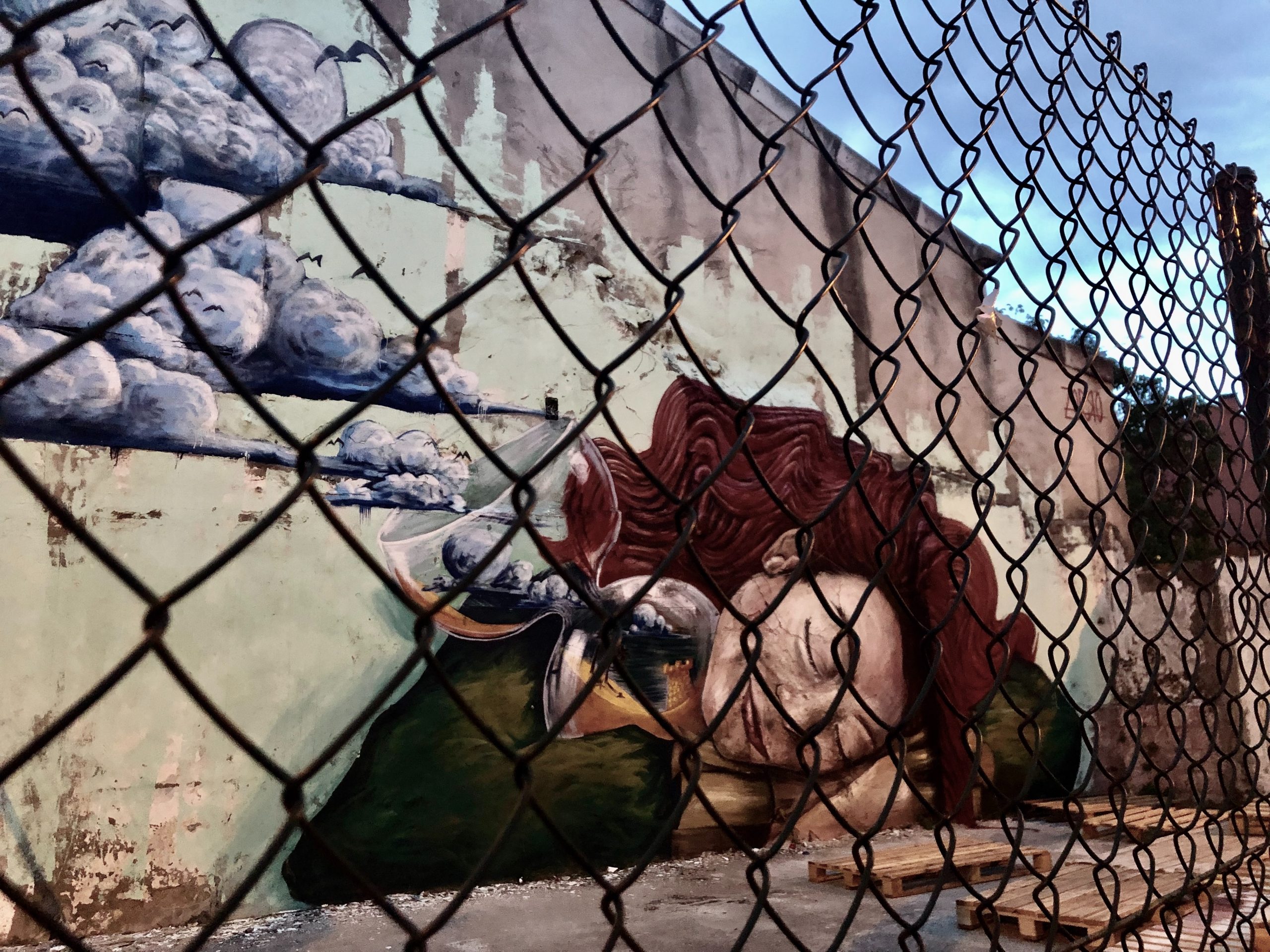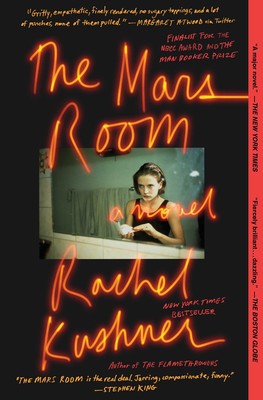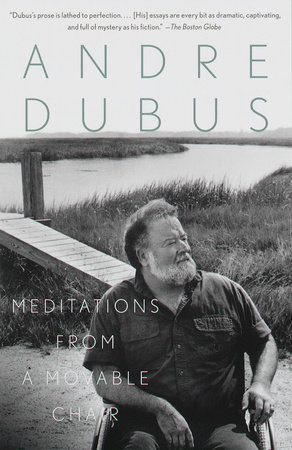Reading Lists
7 Books About Confinement and the Need to Escape
David Moloney recommends books about forced isolation

Many of us are being confined in our apartments and homes due to COVID-19. Social distancing guidelines—depending on your Governor—are being pushed back almost weekly. The initial flattening of the curve made me believe we’d be back to school this semester, still holding commencements, and baseball players would merely miss spring training. But, we have learned that models are only projections, and even though many of us are doing our part, there are people who must work, groceries needing shopping. There is also a small percentage of Americans who feel as though this virus is a hoax, a political move to destroy the president’s chances at reelection. And then there are the people who cannot endure the isolation, foregoing the health of themselves and others so they can escape, succumbing to the innate urge of the ego that they and they alone are the only one that matters.
I don’t pretend to know exactly what our future looks like, but I do know that in fear there lies hope. By us all being confined and distanced, I believe what gets us through this (other than Netflix, booze, and Animal Crossing) is the hope that we will emerge better. What we deem essential to an unmarred democracy pre-COVID may need re-examining. Grocery workers over NBA players. Medical personnel over college football coaches.
Some of us have also found solace in routine, or a sense of loss at not being able to execute the one we had just weeks ago, one in which many of us loathed, but now mourn, beg to once again ride the elevator to the office, make small talk in the cafeteria line. The characters in my new book, Barker House, are conforming to a routine established by policies and procedures. They man the keys to a private county jail in New Hampshire, routinely disturbed by what their power allows them to do, and what it does not. Many of them struggle with moral injury from their employment, the things they’ve done and seen, and their guilt manifests in consequential ways.
Here is a list of books that deal with confinement, but also the need to escape. Though the officers in my book get to leave the jail each day, many of them isolate themselves from society. Their release from confinement isn’t always celebrated, because they know they’ll be back the next day, a Sisyphus scenario they themselves can escape whenever they want, but the pension and power keeps the rock going back up the hill. Through each of these seven books, confinement is temporary, as we all hope is the case for us.
Mr. Splitfoot by Samantha Hunt
In a dual narrative set in different timelines, this novel follows Ruth as a young girl, and then older and mute as Aunt Ruth. Her confinement, in the beginning, is physical, trapped in upstate New York on The Love of Christ! Foster Home, Farm, and Mission. Most of the children have deformities, including Ruth, who has scar-like constellations on her face, which The Father wants, because damaged children are easily converted to his church. The Father once prepared for the Apocalypse, his go-to teaching to end each lesson, but now he doesn’t want to survive it at all.
Ruth and Nat channel the dead, and find themselves linked with a salesman, a Comet-sniffing cult, and each other. In the present, Aunt Ruth takes pregnant Cora on a journey through New York state, where, in the end, both timelines converge into a powerful climax. Mr. Splitfoot is a ghost story about motherhood, family, and faith.
Though, right now, we aren’t on a physical journey, we are traveling through something fantastically unique to our timeline and, like Cora, we will learn more about ourselves and our mission.
The Transmigration of Bodies by Yuri Herrera, translated by Lisa Dillman
A book about a plague might not seem like one to read right now, but Herrera’s short novel is about more than a mosquito driven disease. (Just like how our lives are more than just a virus.) The Redeemer has been tasked with returning the bodies of family members belonging to two rival gangs who are holding the dead hostage. The streets are empty, stores have signs requiring masks to enter, and the hardest hit places are the “squalid areas.” This noirish book is hilarious and grotesque. There are moments where it reads like a narrative of our current circumstance, like this passage:
“Four days ago their song and dance seemed like a hoax. Like the shock you feel when someone jumps out at you from behind a door and then says Relax, it’s only me. Everyone was sure: if it was anything at all, it was no big shit.”
But don’t shy away because of the difficult, relevant content. Herrera’s Shakespearean novel is brilliant.

The Mars Room by Rachel Kushner
Romy Hall is serving two life sentences at a women’s prison in California. Through her experiences, we are given a glimpse into the broken criminal justice system. Romy—a former stripper—killed a stalker on her porch with a crowbar. In a just world, Romy’s crime would be considered by a judge or jury with more nuance, her stalker’s actions before the killing would be made admissible, and her past drug addiction and profession wouldn’t be used as evidence.
In The Mars Room, Romy isn’t the only voice that is living in confinement. There are excerpts from the Unabomber’s diaries, who chose to live as a recluse in a remote cabin. Doc, a prisoner at New Fulsom, is a former dirty cop convicted of a contract killing. And Gordon, who teaches in the GED program, moves to the secluded mountains, much like the Unabomber, and succumbs to his crush on Romy.
It isn’t appropriate to equate social distancing to serving a prison sentence, like Ellen DeGeneres was dragged for doing, because we can choose to leave our homes. We have takeout, TV, and alcohol. But there is an urge to escape, to exercise our freedom, especially when someone is telling us that we can’t. Instead, stay confined, read this book, and root for Romy’s breakout.
When I Was Five I Killed Myself by Howard Buten
From eight-year-old Burt’s perspective, confined in a children’s residential facility as a patient, the novel illustrates what can happen when a slew of adults fail a child. Burt is in the residence for what he did to Jessica. His treatment, after two months of being held there, isn’t effective, because he is stuck between two different psychiatric philosophies: Dr. Nevele’s and Rudyard’s. Rudyard is young and his approach is experimental (but appears to be working), while Dr. Nevele’s traditional method feels punitive. Burt is autistic, and wants nothing more than to speak with Jessica and know if she is okay, but he cannot. Dr. Nevele withholds Burt’s letters. He frequents the Quiet Room and is prone to violent outbursts. The narration is authentic and original, moves with such a pace the novel can be read in one sitting, and Buten withholds what brought Burt to the residence long enough to build page-turning suspense.
The Mezzanine by Nicholson Baker
Some people have come to think of our social distancing (more like physical distancing, because we are still being social) as a timeout. Much has been put on pause and many of us have had our work suspended, furloughed into a holding pattern. This peculiar situation has caused me to muse about the inessentials in my life: cable, department meetings, paid-for haircuts. Baker’s meditative narrative, The Mezzanine, follows Howie as he spends his lunch break from his office work. Much of the novel is told through digressions, which don’t feel random, but are the meditations of a man who wants to see his digressions through to the end with linearity.
Howie is confined by his musings, which seem to clutter the narrative and also his life. Told through a plotless narrative and digressive footnotes (later in the book, there are a series of footnotes about footnotes), his attention to his daily experience allows him to think minutely about the things he interacts with: shoelaces, small bags, milk, CVS, straws, escalators. Take when his shoelace snaps, causing him to buy new ones at CVS, which makes him think of small bags, he wonders about his relationship to his memory of learning to tie his shoes: “But I supposed this is often true of moments of life that are remembered as major advances: the discovery is the crucial thing, not its repeated later applications.”
Howie escapes his office job’s physical confinement during his lunch break only to find himself mentally confined by his tangential thoughts. This plotless novel is the perfect book for when you feel like your days are becoming plotless.
Sula by Toni Morrison
Morrison’s second novel, published in 1973, opens with a description of the Bottom, which is actually “set up in the hills.” Land was hard to farm, but that was the point. A white farmer gave it to a slave who had completed difficult chores to earn it. A joke. What follows is a story about lifelong friends who come-to-age in the Bottom—Sula and Nel—as they carry a grave secret in different ways: the death of a young boy, Chicken Little.
There is much confinement in this novel. The only witness to the death, Shadrack, a veteran who lives in a cabin by the riverbacks, is the town drunk and eccentric, and celebrates his made-up holiday, National Suicide Day, every year, ritualisticly. Eva Peace, Sula’s grandmother, who lost a leg, wheels around the third floor of the full house in a “rocking chair top fitted into a large child’s wagon.” Hannah, bound to her sexuality, who “refused to live without the attentions of a man.” Sula is able to escape the Bottom, go to college, live in the city, while Nel stays. Sula returns “accompanied by a plague of robins.” Much in the Bottom is ruffled by her return, especially Nel, who becomes trapped in both parental roles for her children when she catches Jude and Sula together.
A classic novel of matriarchal families, intense relationships, sex, sorrow, and blackness, Sula is as mournful as it is beautiful.
Meditations from a Movable Chair by Andre Dubus II
Short story writer and essayist Andre Dubus was hit by a car on the side of the highway in 1986 while helping two broken down motorists. After weeks in the hospital, his right leg was amputated above the knee. An ex-Marine, physicality plays a large role in his fiction. There are stories about baseball players, soldiers, weight lifters, and runners. In his essay collection Meditations from a Movable Chair, written after the accident, Dubus writes while confined to a wheelchair. The essays explore his youth, his relationship with his father, the Marines, being crippled, leading a writers’ group, and spirituality. In “Digging,” Dubus tells of his first job shoveling out trenches and his gratefulness to his father for not rescuing him during a difficult first day. “A Hemingway Story” offers advice to teachers, to “walk into a classroom wondering what I would say, rather than knowing what I would say.”
The essays alternate between the time Dubus had functioning legs and then when he didn’t. He turns to God, daily Communion, a long distance relationship over the phone, and his memories. The collection is moving and difficult. But it does offer deep contemplation in what one used to have, and what one has now, and to be grateful for experiencing both. In “A Country Road Song,” Dubus recounts his days of running through Bradford, Massachusetts as the seasons change. He remembers what he wore, the sweat, the trees. Instead of lamenting about not being able to run those wooden paths again, he sings in appreciation of having had those days:
“I mourn this, and I sing in gratitude for loving this, and in gratitude for all the roads I ran on and walked on, for the hills I climbed and descended, for the trees and grass and sky, and for being spared losing running and walking sooner than I did: ten years sooner, or eight seasons, or three; or one day.”















